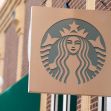The environmental watchdog group, Environmental Working Group (EWG), has filed a lawsuit against Tyson Foods, accusing the company of making false and misleading claims about its climate-friendly goals. The lawsuit was filed in late September in a Washington D.C. superior court. EWG claims that Tyson Foods’ advertised climate goals are a violation of the DC Consumer Protection Procedures Act. Under this act, customers have the right to truthful information from companies that have goods that would be purchased or received in the District of Columbia.
The lawsuit points a spotlight on the growing trend among companies to market their products as being climate-friendly, when in fact, the claims are not always substantiated. EWG specifically points to claims made by Tyson Foods in its “climate-smart” beef program. The program has a defined goal that it will reduce 30% of its beef product emissions by the year 2030. However, the EWG says there is no proof to substantiate those claims. The lawsuit details that there is no baseline to measure this goal and that there is no defined data that shows ranchers who supply their beef to Tyson Foods are taking or have taken steps to reduce greenhouse gas (GHG) emissions.
The complaint details, “Tyson has not released any data to show that any particular product meets a ‘climate-smart beef’ standard (whatever that standard is), or that any practices adopted by ranchers or feedlot owners in its climate-smart beef program have reduced GHG emissions from Tyson’s supply chain.”
EWG also takes aim at Tyson Foods' ambitious goal of achieving net-zero emissions by the year 2050. The organization maintains that because the food company is marketing itself as a climate-conscious beef producer without actually implementing or tracking such policies, consumers are misled into paying more for a product because they believe it to be superior to other products on the market.
This is one of several lawsuits that have been filed against companies that claim such ambitious sustainability goals. Tyson Foods is the second largest provider of meat in the nation and faces its lawsuit just weeks after Coca-Cola was hit with a similar lawsuit accusing it of violating the DC Consumer Protection Procedures Act.
“If food companies are going to tell consumers that certain food items are better for the climate, companies had better be able to show us the receipts,” Scott Faber, EWG’s senior vice president for government affairs, said in a statement.
A spokesperson for Tyson Foods has pushed back against the allegations. In an email to Agriculture Dive, a company spokesperson shared, “While we do not comment on specific litigation, Tyson Foods has a long history of sustainable practices that embrace good stewardship of our environmental resources”. The statement adds, “We will continue to support agricultural practices that further these efforts and work to strengthen the overall resiliency of the U.S. agriculture system.”
The lawsuit is seeking to have a court rule that Tyson Foods must stop making these unsubstantiated environmental claims and retract any marketing that makes such claims. EWG is also seeking to have Tyson Foods held accountable for violating the DC Consumer Protection Procedures Act, which authorizes monetary damages to consumers harmed by unlawful trade practices.






